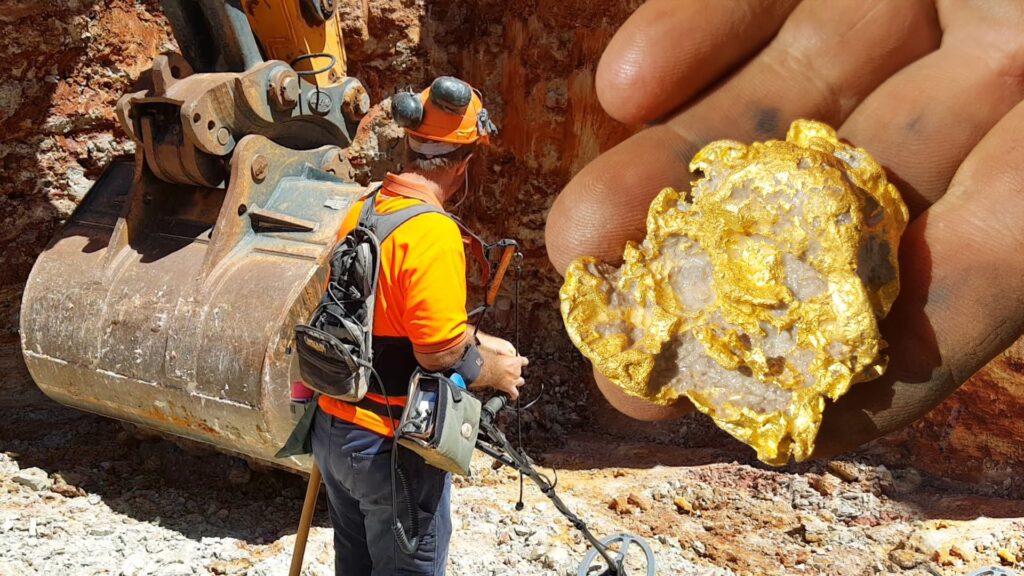Gold buying procedures In Cameroon-Gold import regulations Cameroon, Gold mining in Cameroon is a significant activity in the country’s mining sector. Here are some key points about gold mining in Cameroon:

History and Background
- Early Mining: Gold mining in Cameroon dates back to the pre-colonial period when indigenous communities mined gold for trade and ornamental purposes.
- Colonial Era: During the colonial period, especially under German and later French rule, more systematic gold mining was conducted, primarily focusing on alluvial deposits.
Geographical Distribution
- Eastern Region: The Eastern Region of Cameroon is the primary area for gold mining. This region includes the Lom and Djerem, Kadey, and Upper Nyong divisions.
- Other Regions: Smaller scale operations are also found in the Northern Region and parts of the South-West and Central regions.
Types of Gold Mining
- Artisanal and Small-Scale Mining (ASM): This is the most common form of gold mining in Cameroon. It involves local miners using rudimentary tools and techniques. ASM is a significant livelihood for many communities but often operates informally.
- Industrial Mining: There are a few industrial gold mining operations, but these are less common. Companies often face challenges like infrastructure deficits and regulatory hurdles.
Economic Impact
- Employment: Gold mining provides employment opportunities for many Cameroonians, especially in rural areas.
- Revenue Generation: It contributes to local and national economies through the export of gold and related financial activities.
- Challenges: Despite its potential, the sector faces issues such as illegal mining, environmental degradation, and conflicts over land use.
Regulatory Framework
- Mining Code: Cameroon has a Mining Code (established in 2001 and revised in 2016) that regulates mining activities. This code aims to attract foreign investment while ensuring sustainable mining practices.
- Licensing: The Ministry of Mines, Industry, and Technological Development oversees the issuance of mining licenses and ensures compliance with regulations.
Environmental and Social Issues
- Environmental Impact: Gold mining, especially ASM, can lead to deforestation, water pollution, and soil erosion. Mercury use in gold extraction poses serious environmental and health risks.
- Social Issues: Mining activities sometimes lead to conflicts between mining communities and other land users, such as farmers and indigenous groups. There’s also concern about child labor and poor working conditions in artisanal mines.
Initiatives and Support
- Government Initiatives: The Cameroonian government has initiated several programs to support the formalization and improvement of the ASM sector, including providing technical assistance and promoting sustainable practices.
- International Support: Various international organizations and NGOs are involved in projects aimed at improving the sustainability and regulation of gold mining in Cameroon.
Future Prospects
- Exploration and Investment: There is ongoing interest from international mining companies in exploring and investing in Cameroon’s gold mining sector, given its untapped potential.
- Technological Advancements: Adoption of modern mining techniques and technologies could enhance productivity and reduce environmental impacts.
Gold import regulations Cameroon- How to start gold mining in Cameroon
Gold import regulations in Cameroon are governed by the country’s laws and regulations aimed at controlling and monitoring the trade of precious metals. The key regulatory framework includes the Mining Code and related ministerial orders. Here are the main aspects of gold import regulations in Cameroon:
Regulatory Framework
- Mining Code:
- 2001 Mining Code (revised in 2016): This code provides the legal basis for all mining activities in Cameroon, including the import and export of minerals such as gold.
- Licensing and Permits: Importers must obtain relevant licenses and permits from the Ministry of Mines, Industry, and Technological Development. This includes import permits and customs clearances.
- Customs Regulations:
- Customs Duties and Taxes: Importers of gold are subject to customs duties and taxes as stipulated by the Directorate General of Customs. These duties are based on the value of the imported gold.
- Documentation: Importers must provide necessary documentation, including invoices, certificates of origin, and proof of payment of duties and taxes.
Key Requirements
- Licensing and Registration:
- Importer Registration: Entities involved in the import of gold must be registered with the Ministry of Mines, Industry, and Technological Development.
- Import Permit: An import permit is required to legally bring gold into Cameroon. This permit specifies the quantity and type of gold to be imported.
- Quality and Certification:
- Certification of Origin: Imported gold must have a certificate of origin to verify its source and authenticity.
- Quality Control: The gold must meet the quality standards set by Cameroonian authorities. It may be subject to inspection and assay upon arrival.
- Reporting and Documentation:
- Import Declaration: Importers must file an import declaration with the customs authorities, detailing the quantity, value, and source of the gold.
- Supporting Documents: This includes commercial invoices, packing lists, and any other relevant documentation.
Enforcement and Compliance
- Customs Inspections:
- Verification: Customs officials may inspect shipments to verify the contents against the declared information.
- Compliance Checks: Regular checks are conducted to ensure compliance with import regulations and to prevent smuggling and illegal trade.
- Penalties for Non-Compliance:
- Fines and Penalties: Importers who fail to comply with the regulations may face fines, seizure of goods, and other penalties as prescribed by law.
- Legal Action: Serious violations may result in legal action, including prosecution.
International Trade Agreements
- Trade Agreements: Cameroon is a member of various international trade organizations and agreements, which may influence its import regulations. Importers should be aware of any preferential trade agreements that could affect duties and regulations.
Best Practices for Importers
- Stay Informed: Keep up-to-date with the latest regulations and requirements from Cameroonian authorities.
- Ensure Compliance: Ensure all documentation is accurate and complete to avoid delays and penalties.
- Work with Experts: Consider working with customs brokers or legal experts familiar with Cameroonian import regulations to navigate the process smoothly.







